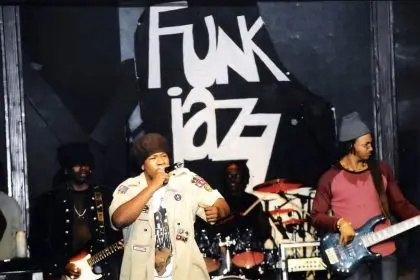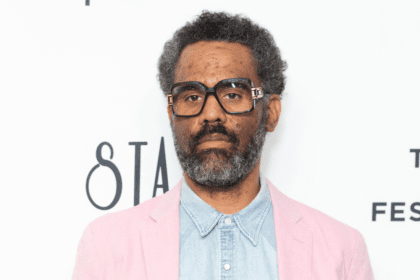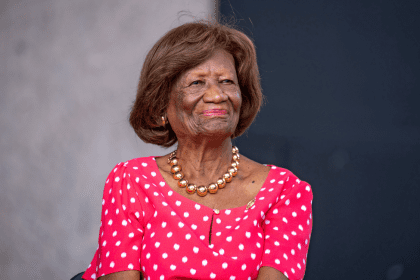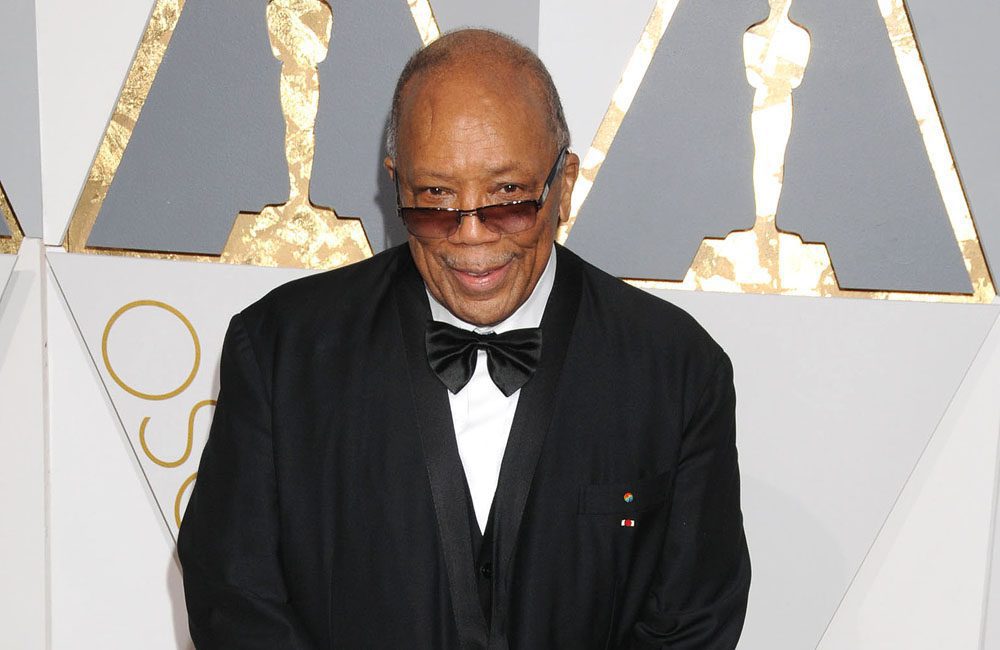The entertainment world mourns the loss of one of its most authentic voices as Ananda Lewis, the trailblazing television host who became synonymous with Black excellence in media, has died at age 52 following her battle with stage four breast cancer. Her sister Lakshmi confirmed the devastating news through social media, marking the end of a remarkable journey that spanned decades of groundbreaking television and fearless advocacy.
Lewis transformed from a charismatic college graduate into one of the most recognizable faces of late-’90s and early-2000s television, becoming a cultural touchstone for an entire generation of young Black women who finally saw themselves reflected in mainstream media. Her death represents not just the loss of a beloved entertainer, but the silencing of a powerful voice that consistently championed health awareness and authentic representation.
From Howard University to television stardom
Born in Los Angeles in 1973, Lewis cultivated her passion for performance at an arts-focused high school before pursuing her education at the prestigious Howard University. The historically Black institution proved to be the perfect launching pad for her meteoric rise in entertainment, providing the foundation for what would become a career defined by breaking barriers and challenging conventions.
Her entry into television came through BET’s Teen Summit, where her natural ability to connect with young audiences immediately set her apart from her contemporaries. The show became a proving ground for Lewis, showcasing her unique blend of intelligence, warmth and uncompromising authenticity that would later make her a household name across multiple networks.
The transition from BET to MTV marked a pivotal moment in both Lewis’s career and the broader landscape of music television. At a time when diversity in mainstream media remained frustratingly limited, Lewis’s presence on MTV represented a seismic shift toward inclusive programming that resonated with audiences across racial and cultural lines.
MTV’s golden girl redefines music television
Lewis’s tenure at MTV coincided with the network’s most culturally significant period, when music videos still dominated the airwaves and artists depended on television exposure to reach massive audiences. Her work on Total Request Live transformed her into a cultural intermediary, facilitating conversations between some of the biggest stars in music and their devoted fans.
Her interviewing style distinguished her from typical entertainment hosts through its combination of genuine curiosity and respectful familiarity. Whether engaging with pop superstars like Britney Spears or emerging hip-hop artists, Lewis maintained an approach that felt both professional and personally invested, creating moments of authentic connection that viewers could sense through their television screens.
The Hot Zone provided another platform for Lewis to showcase her versatility, allowing her to explore different aspects of entertainment journalism while maintaining the approachable persona that had made her so popular. Her ability to seamlessly transition between various show formats demonstrated a professional adaptability that kept her relevant as the media landscape evolved.
Beyond music programming, Lewis’s interactions with political figures, including notable conversations with Hillary Clinton, revealed her capacity to engage with serious topics while maintaining her signature style. These moments highlighted her potential to transcend entertainment television and address substantive issues affecting her audience.
Confronting cancer with characteristic courage
The 2020 revelation of Lewis’s breast cancer diagnosis marked a profound shift in her public narrative, transforming her from entertainer to health advocate with the same authenticity that had defined her television career. Rather than retreating from public view, she chose to share her journey, recognizing the particular importance of breast cancer awareness within Black communities.
Her decision to discuss her diagnosis publicly reflected a deep understanding of health disparities affecting Black women, who face disproportionately high rates of aggressive breast cancers and often encounter barriers to early detection and quality treatment. Lewis leveraged her platform to address these systemic issues while encouraging women to prioritize their health through regular screenings and self-advocacy.
As her condition progressed to stage four, Lewis approached her treatment decisions with the same thoughtful consideration that had characterized her career choices. Her preference for holistic approaches over conventional medical interventions sparked important conversations about patient autonomy and alternative healing methods, though her choices remained deeply personal rather than prescriptive.
The February 2025 essay in Essence magazine represented one of her final public statements, offering profound reflections on mortality and intentional living that resonated far beyond her immediate audience. Her contemplation of life’s temporary nature and its impact on daily choices provided a philosophical framework that many found both comforting and challenging.
A lasting impact on representation and advocacy
Lewis‘s legacy extends far beyond her television accomplishments, encompassing her role as a pioneer who opened doors for future generations of Black women in media. Her success demonstrated that authentic representation could coexist with mainstream appeal, providing a template for diverse voices in entertainment programming.
Her commitment to health advocacy transformed personal struggle into public service, creating awareness campaigns that potentially saved lives through early detection encouragement. The intersection of celebrity platform and health education became a model for how public figures could leverage their influence for community benefit.
The fashion moments and red carpet appearances that punctuated her career reflected not just personal style but a larger statement about Black beauty and elegance in mainstream media. From leather ensembles at MTV awards to sequined gowns at BET ceremonies, her fashion choices consistently projected confidence and cultural pride.
Lewis’s death at 52 represents an enormous loss for the entertainment industry and the communities she served through her advocacy work. Her influence on television hosting, health awareness and authentic representation will continue inspiring future generations of media professionals and health advocates who understand the power of using their platforms for positive change.















